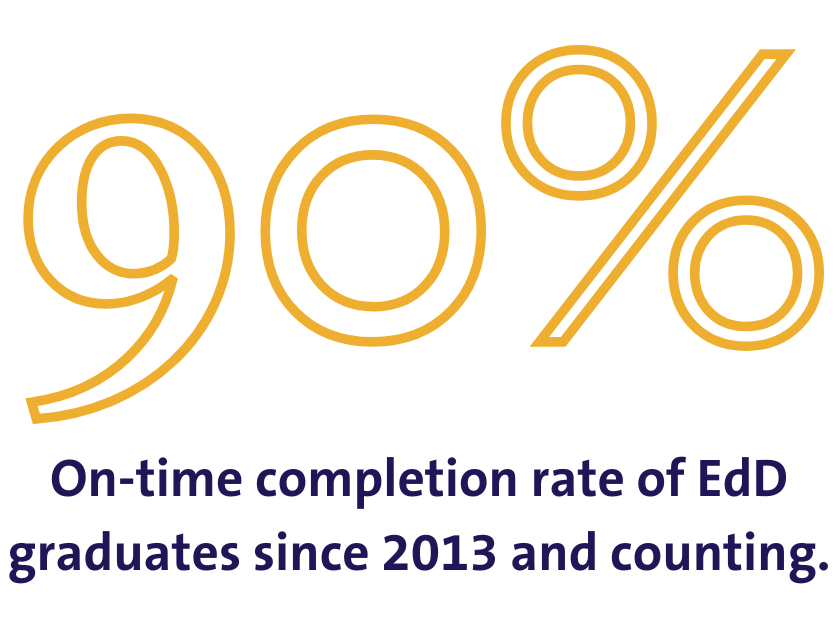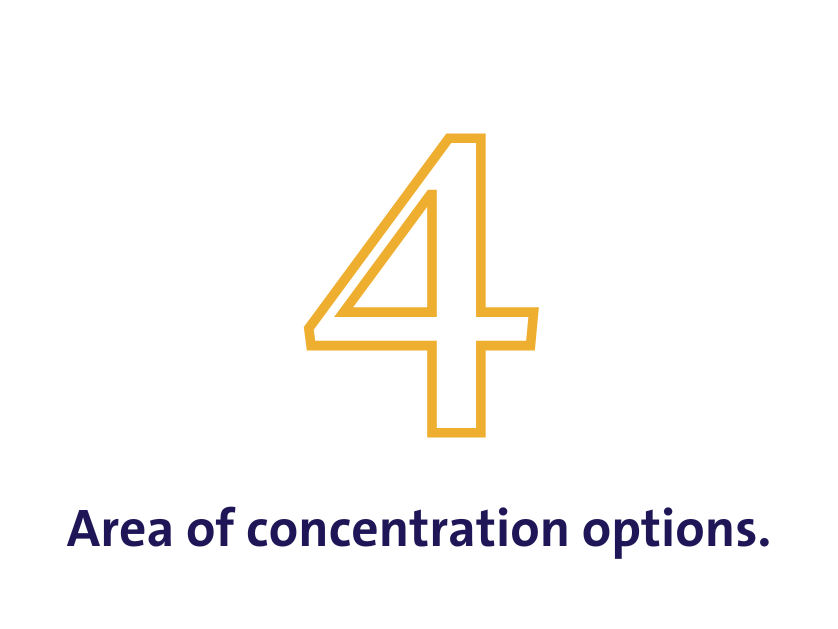
Doctor of Education (EdD) - Portland, Oregon

Learning and Leading begins here
Offering a Redesigned Hybrid Model
The Doctor of Education (EdD) in learning and leading combines innovative coursework and faculty expertise with applied research and best practices. Our next Portland-based cohort begins in summer 2025.

Program Contact and Information
Purpose-Driven Partnerships
-
Carnegie Project on the Education Doctorate (CPED)
Carnegie Project on the Educational Doctorate is a consortium of universities selected for their innovative approaches and commitment to strengthening the EdD model.
About CPED -
National Network of Education Research-Practice Partnerships
National Network of Educational Research-Practice Partnerships (NNERPP) is a coalition of twelve national universities selected for their model programs of applied research and program evaluation services for P-12 school and district partners.
About NNERPP -
Multnomah County Partnership for Education Research (MCPER)
Multnomah County Partnership for Education Research (MCPER) is a partnership between the School of Education, Northwest Evaluation Association, and the six districts of Multnomah County to engage doctoral students in real-world experience conducting applied research programs and program evaluation to improve educational practice and policy in P-12 schools and districts.
About MCPER -
Educational Leadership Network (ELN)
Educational Leadership Network is a leadership network governed by a board of local school leaders based in the School of Education that offers free or greatly reduced access to high quality professional development and professional networking through events held three-four times a year.
About ELN

Become the leader you were meant to be
An EdD education from UP satisfies every bottom line.
We are here for you. Every step of the way, and across the finish line. Here, you will develop research skills that make a difference across the program and throughout your professional life. You will learn to investigate complex organizational problems, identify factors within a system, develop and test innovations, and communicate findings to influence change. Join us to deepen your current knowledge and navigate your future with us.
EdD Program Overview and Strengths
-
Credits and Length
The 51-credit cohort program is designed to be completed in 3 years. Students enroll in 5-6 credits in 3 contiguous semesters (summer, fall, spring) during 3 consecutive years of study. Part-time options may be planned individually based on consultation and transfer credit. Career goals will determine the best track for each student.
-
Four Areas of Concentration Based on Your Professional Goals
EdD candidates select one of the following 15-credit concentrations to integrate into their program:
(1) School leadership and development (principal licensure courses)
(2) Organizational leadership and development (professional administrator licensure courses), or
(3) Higher education and student affairs
(4) Nursing leadership -
Transfer Credit Options
Individuals who have completed a post master's program in one of the following areas are eligible for transfer credit: principal license, professional administrator license, or higher education and student affairs (HESA). UP alumni of these post master's certificate programs have satisfied the corresponding 15 credits of area of concentration courses in the EdD program. For individuals who have completed a post master's program in one of these areas at another institution, up to 12 post master's credits completed within 5 years of application to the EdD program may be considered for transfer toward the area of concentration courses, upon approval by the Graduate Division Chair. Graduate courses completed as part of a master's program are not eligible for transfer. Students who enter the EdD program with a master's degree in principal licensure or HESA must select a different area of concentration in the EdD program.
-
Accessible and Affordable
Courses are delivered on the UP campus face to face three Saturdays per term in the Fall and Spring semesters and one week intensive face to face on campus with preparatory and follow-up synchronous (zoom) and asynchronous work in the Summer semester. There is also one 2.5 hour zoom session every week (Wednesdays late afternoon/evening) with additional asynchronous work.
The School of Education offers programs at some of the lowest tuition rates in the metropolitan area. Review the current graduate program tuition rates. There is no fee to apply to the program. All programs are eligible for federal financial aid.
-
Doctoral Research Associate Fellowship
Working under the direction of the School of Education faculty, the Research Associate will engage in research partnerships with school systems in the Portland metropolitan area and assist in research methodology consultations, data summary and preparation tasks, and applies P-12 research projects. Research Associates will receive a fiscal-year (12-month, July through June) fellowship, renewable for up to three years during the length of doctoral studies. The fellowship includes full tuition scholarship and a stipend paid on an hourly basis. For questions about becoming a doctoral fellow, please contact edresearch@up.edu.
-
Information, Consultation, and Advising Sessions
The dates and times of upcoming information sessions are available in advance. For general questions about the EdD Portland program, questions related to transfer credits, and/or to schedule individual consultation with the Graduate Division Chair, please contact Dr. Julie Kalnin at kalnin@up.edu or 503.943.7886.

Build deep understanding
Become an expert in your field.
The EdD program in learning and leading offers four area of concentration options: (1) School Leadership & Development (2) Organizational Leadership & Development (3) Higher Education & Student Affairs (4) Nursing Leadership
EdD Program of Study and Concentrations
-
Doctoral Core Courses (21 credits)
ED 600 Introduction to Doctoral Research (3 cr.)
ED 601 Advanced Qualitative Research (3 cr.)
ED 602 Advanced Quantitative Research (3 cr.)
ED 603 Research for Evaluation and Action (3 cr.)
ED 610 Cultural and Institutional Perspectives on Education: Individual, Community, and Society (3 cr.)
ED 611 Essential Ideas in Education: History, Philosophy, and Change (3 cr.)
ED 614 Adult Learning, Group and Organizational Dynamics (3 cr.) -
Area of Concentration Courses (15 credits in one concentration)
School Leadership & Development (Principal License*)
ED 544 Human Resource Development and Management (3 cr.)
ED 545 Leadership and Organizational Change (3 cr.)
ED 546 Policy, Ethics, and the Law (3 cr.)
ED 547 Resource Allocation, Finance and Management (3 cr.)
ED 548 Supervision for Instructional Improvement (3 cr.)
*Note: Additional license requirements and coursework beyond the 15 hour EdD concentration is required for principal licensure in Oregon. Check with your program contact for details of an extended academic plan if considering this EdD area of concentration for a possible licensure outcome.Organizational Leadership & Development (Professional Administrator License*)
ED 552 Leadership for Sustaining the Vision (3 cr.)
ED 553 Leadership for Instructional Improvement (3 cr.)
ED 554 Leadership for Effective Data Driven Decision Making (3 cr.)
ED 556 Effective Leadership and Management in the Socio-Political Context (3 cr.)
ED 557 Ethical Leadership and Moral Imperative for Inclusive Practice (3 cr.)
*Note: Additional license requirements and coursework beyond the 15 hour EdD concentration is required for professional administrator licensure in Oregon. Check with your program contact for details of an extended academic plan if considering this EdD area of concentration for a possible licensure outcome.Higher Education & Student Affairs
ED 520 History, Organization, and Student Personnel in Higher Education (3 cr.)
ED 521 Student Career Development and Planning (3 cr.)
ED 522 Legal Issues in Higher Education (3 cr.)
ED 523 Developmental Theory, Identity and College Populations (3 cr.)
ED 528 Foundations of Counseling and Student Affairs (3 cr.)Nursing Leadership
NRS 641 Health Systems Policy and Leadership (3 cr.)
NRS 642 Contemporary Curriculum Development (3 cr.)
NRS 643 Resource Management Principles in Education and Nursing Administration (3 cr.)
NRS 644 Policy, Politics, and Technology in Nursing Education and Leadership (3 cr.)
NRS 645 Quality Improvement in a Culture of Technology (3 cr.) -
Prospectus and Dissertation Courses (15 credits)
ED 621 Dissertation Prospectus (5 cr.)
ED 622 Dissertation Seminar (2 semesters, 2 cr. each semester)
ED 698 Dissertation Defense (0 cr.)
ED 699 Dissertation Research (2 semesters, 3 cr. each semester)Course descriptions are available in the University of Portland Bulletin.
-
The Prospectus and Dissertation Process
Pre-candidacy evaluation. In the first two years of the program, students complete core and area of concentration courses that lay the foundation for the completion of the dissertation. During the sixth semester, students submit a Qualifying Paper that presents a critical literature review of scholarship pertaining to the topic area they wish to study for their dissertation. The Qualifying Paper is a required step in the process towards development of a Dissertation Proposal.
Post-candidacy evaluation. In the second year of the program, doctoral committees are established to support student's independent research.
Prospectus Defense. Once a student's doctoral committee is established, the Chair and Committee Members review the student's Qualifying Paper and determine if the student may progress to writing the Dissertation Proposal. The student then prepares a prospectus for an oral defense to the doctoral committee. The focus of this defense is to ensure that the student's dissertation project is well-conceived and the student is prepared to begin conducting the proposed research independently.
Dissertation Defense. Upon completion of the dissertation, an oral defense is conducted by the candidate to their doctoral committee. The purpose of the defense is to confirm three elements of the dissertation: (a) the candidate's mastery of methodology employed in the dissertation study, (b) the appropriateness of findings in relation to the methods employed, and (c) the clarity of communication.
Educational Specialist (EdS) Option. Students may complete only the coursework portion of the EdD and graduate with an Educational Specialist (EdS) degree. The EdS is proposed as a completion alternative for students who are unable or who are not recommended to advance to dissertation candidacy.


